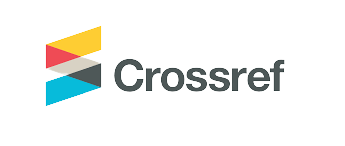Building a Golden Generation: Synergy of Education, Technology, and Qur'anic Values
Keywords:
Golden Generation, Education, Technology, Quranic Values, CharacterAbstract
The development of the golden generation is a strategic agenda in forming individuals who excel intellectually, morally, and spiritually. The synergy between education, technology, and Qur'anic values is a key element in creating a generation that is not only academically intelligent, but also has a strong character. This article explores the role of education as the main foundation in developing human resources, technology as an accelerator in the learning process, and Qur'anic values as moral and ethical guidelines in life. With a multidisciplinary approach, this study highlights the integration of these three aspects in creating a golden generation that is able to face global challenges. The results of the study show that technology-based education based on Qur'anic values is able to improve the quality of character and competence of students.
References
Anggraheni, R., & Astuti, R. D. (2020). Revitalisasi Nilai-Nilai Islami dalam Edukasi guna Mempersiapkan Generasi Menuju Era Society 5.0 sebagai Bagian dari Strategi Rekonstruksi Kejayaan Peradaban Islam. Prosiding Konferensi Integrasi Interkoneksi Islam Dan Sains, 2, 31–34. Retrieved from http://sunankalijaga.org/prosiding/index.php/kiiis/article/view/368
Aslan, A. (2022). Relevancy of Research Evidence With the Success of Alquran Memorising: Young Hafiz Motivational Approach. Jurnal Ilmu Pendidikan Islam, 20(1), 1–26. Retrieved from http://ejournal.kopertais4.or.id/pantura/index.php/jipi/article/view/3929
Dhingra, S., Rahman, N. A. A., Peile, E., Rahman, M., Sartelli, M., Hassali, M. A., … Haque, M. (2020). Microbial Resistance Movements: An Overview of Global Public Health Threats Posed by Antimicrobial Resistance, and How Best to Counter. Frontiers in Public Health, 8(November), 1–22. https://doi.org/10.3389/fpubh.2020.535668
Hastasari, C., Setiawan, B., & Aw, S. (2022). Students’ communication patterns of islamic boarding schools: the case of Students in Muallimin Muhammadiyah Yogyakarta. Heliyon, 8(1), e08824. https://doi.org/10.1016/j.heliyon.2022.e08824
Hasudungan, N. A., Ofianto, & Tri, N. Z. (2021). Learning Loss: A Real Threat in Education for Underprivileged Students and Remote Regions during the Covid-19 Pandemic. International Journal of Distance Education and E-Learning, VII(I), 15–30.
Hermino, A., & Arifin, I. (2020). Contextual character education for students in the senior high school. European Journal of Educational Research, 9(3), 1009–1023. https://doi.org/10.12973/EU-JER.9.3.1009
Huberman, A. M., & Jhonny, S. (2014). Qualitative Data Analysis a Methods Sourcebook. America: Arizona State University.
Jayanthi, R., & Dinaseviani, A. (2022). Kesenjangan Digital dan Solusi yang Diterapkan di Indonesia Selama Pandemi COVID-19. JURNAL IPTEKKOM Jurnal Ilmu Pengetahuan & Teknologi Informasi, 24(2), 187–200. https://doi.org/10.17933/iptekkom.24.2.2022.187-200
Khan, P. A., Johl, S. K., Akhtar, S., Asif, M., Salameh, A. A., & Kanesan, T. (2022). Open Innovation of Institutional Investors and Higher Education System in Creating Open Approach for SDG-4 Quality Education: A Conceptual Review. Journal of Open Innovation: Technology, Market, and Complexity, 8(1). https://doi.org/10.3390/joitmc8010049
Lundeto, A. (2023). Islamic Education for Adolescents in the Era of Disruption in Overcoming the Moral Crisis. Paradigma, 20(2), 323–339. https://doi.org/10.33558/paradigma.v20i2.7135
Marlena, L. (2022). Hubungan Islam dan Negara dalam Pandangan Ahmad Syafii Maarif. MANTHIQ : JURNAL FILSAFAT AGAMA DAN PEMIKIRAN ISLAM, 23(2).
Mufidah, N. Z. (2021). Integrated Curriculum Management In Forming Students Life Skills In SDI Qur’ani Al- Bahjah Tulungagung. ZAHRA: Research and Tought Elementary School of Islam Journal, 2(2), 83–98. https://doi.org/10.37812/zahra.v2i2.209
Mujahid, I. (2021). Islamic orthodoxy-based character education: creating moderate Muslim in a modern pesantren in Indonesia. Indonesian Journal of Islam and Muslim Societies, 11(2), 185–212. https://doi.org/10.18326/ijims.v11i2.185-212
Mustofa, B. (2016). Al-Ibris. kudus, Jawa Tengah: Maktabah Menara Kudus.
Rahman, A. (2024). Implementasi Manajemen Berbasis Madrasah dalam upaua Peningkatan Mutu Pembelajaran. UNISAN JURNAL: JURNAL MANAJEMEN DAN PENDIDIKAN, 03(04), 813–820.
Rambe, S., Dasopang, E. P., Pahutar, M., Ariadin, I., & Qorib, M. (2023). Modernity in the Management of the Umsu Faculty of Islamic Studies. Ta Dib Jurnal Pendidikan Islam, 12(1), 65–74. https://doi.org/10.29313/tjpi.v12i1.11767
Roni Susanto, F. H. (2024). Education as an Agent of Social Change: A Sociological Persfective. Taqorrub: Jurnal Bimbingan Konseling Dan Dakwah, 5(2), 79–94. Retrieved from https://scholar.google.com/scholar?oi=bibs&cluster=16197885558079716437&btnI=1&hl=id
Sabiq, A. (2022). The Role of Islamic Boarding Schools in Building National Morality Towards Golden Indonesia 2045. Wawasan: Jurnal Kediklatan Balai Diklat Keagamaan Jakarta, 3(1), 16–30. https://doi.org/10.53800/wawasan.v3i1.118
Sugiyono. (2010). Metode Penelitian Pendidikan. Bandung: CV Alfabeta.
Susanti, P., Jayadi, P., Hidayati, N. R., Riyanto, S., & Kiswardianta, R. B. (2023). Pelatihan Pembuatan Google Sites Sebagai Media Pembelajaran Berbasis Website Bagi Guru Smk Cendekia Madiun. Jurnal Terapan Abdimas, 8(1), 141. https://doi.org/10.25273/jta.v8i1.14022
Susanto, R. (2024a). Konsep Pendidikan Karakter dalam Islam. U ME Publishing.
Susanto, R. (2024b). Penerapan Metode Musyafahah dalam Menjaga Autentisitas Qiraat Sab’ah (Studi Analisis di PPTQ al-Hasan Ponorogo dan PP al-Munawwir Krapyak) (IAIN Ponorogo). IAIN Ponorogo. Retrieved from http://etheses.iainponorogo.ac.id/id/eprint/29381
Susanto, R., & Muhamma, d A. U. N. (2024). Transformasi Budaya Islam Nusantara di Tengah Tantangan Modernitas: Peran Nahdatul Ulama. In Trajectory Visi Kemanusiaan Sarjana NU (pp. 468–477). Publica Indonesia Utama.
Umar Jaeni, Ismet Basuki, & Moedjiarto. (2020). Culture Learning Management Al-Quran Model Tilawati to Improve Student Character. IJORER : International Journal of Recent Educational Research, 1(3), 286–300. https://doi.org/10.46245/ijorer.v1i3.65
Uzma Qatrunnada, A., Lessy, Z., Naufal Agniansyah, M., Zulfa, R., Samsudin Juhri, W., & Khoirohnissah, D. (2021). Actualization of Religious Moderation Towards a Society 5.0 Era Through Understanding Education Management, Mental Health Awareness, and Organizational Activity. Sunan Kalijaga International Journal on Islamic Educational Research, 5(1), 106–126. https://doi.org/10.14421/skijier.2021.51.08
Yahuda, R. D., Susanto, R., Widodo, W., & Kolis, N. (2024). Totally Muslim Truly Intellectual-Based Holistic Education in Postgraduate Programs. QALAMUNA: Jurnal Pendidikan, Sosial, Dan Agama, 16(2), 1399–1410. https://doi.org/10.37680/qalamuna.v16i2.4104
Zitri, I., Rifaid, R., & Umami, R. (2022). Pendampingan Penguatan Kapasitas Anggota Badan Permusyawaratan Desa (BPD) Desa Karang Bongkot dalam Penyusunan PERDes Pembentukan BUMDes. JCES (Journal of Character Education Society), 5(3), 726–738. Retrieved from http://journal.ummat.ac.id/index.php/JCES/article/view/9326
Downloads
Published
How to Cite
Issue
Section
License
Copyright (c) 2025 Journal of Islamic Studies and Educational Innovation

This work is licensed under a Creative Commons Attribution-ShareAlike 4.0 International License.







